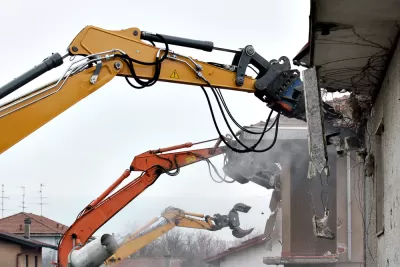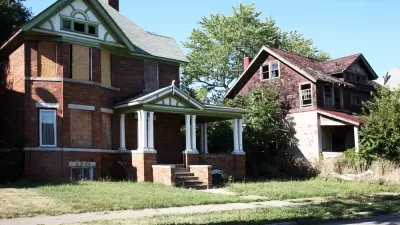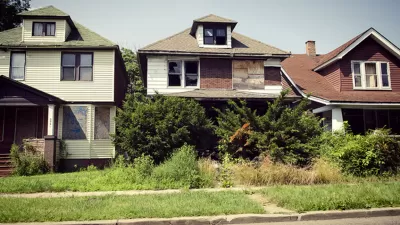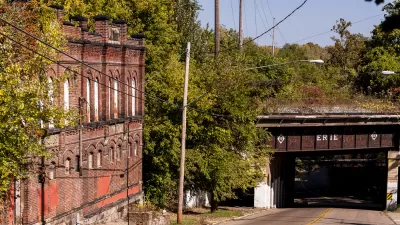Proposal N, on the ballot for Detroit voters next week, will provide $160 million in bond funding for demolitions and $90 million to mothball homes for future rehab, but, according to this opinion, it won't solve the city's blight challenges.

[Updated November 3, 2020] Eric Kehoe, provides commentary on Proposal N, which will appear before voters in the city of Detroit on Tuesday as a piece of the city's response to the vacant properties in the city by approving a "taxpayer-funded bond measure that would primarily pay to demolish vacant properties in the city."
Kehoe writes on the subject as an urban planner, former president of Preservation Detroit, and a founding member of Detroiters for Parking Reform, suggesting that a regional approach to blight and vacancies might be effective at solving Detroit's problems. First of all, Proposal N won't solve blight, according to Kehoe, because demolitions don't necessarily work as a catalyst for new development:
The idea that “if you clear it, they will build” hasn’t been backed up elsewhere, either. Research by Jason Hackworth shows that demolition-only policies have left 269 Rust Belt neighborhoods — including some in Detroit — segregated and value-depressed, often leading to further decline.
To explain why demolition doesn't necessarily seed reinvestment in Detroit specifically, Kehoe points to the effects of sprawl:
As land in Detroit neighborhoods continues to sit vacant, it’s overly optimistic to think that a focus on demolition will tip the scale for redevelopment. The underlying issue is a sprawling regional footprint that continues unabated. And that sprawl is linked to discrimination in our region.
Even if Detroit voters approve Proposal N, the city's vacant properties and blight problem will remain, according to Kehoe, and an unprecedented regional approach is necessary to solve these challenges.
"To curb sprawl, municipalities could work together to create greenbelts or urban growth boundaries to limit the development of new land. Passing a regional transit plan would help shift the population’s reliance on cars, encouraging compact redevelopment along public transit corridors," writes Kehoe
FULL STORY: Detroit shouldn't have to tackle blight alone. Look for a regional solution.

Study: Maui’s Plan to Convert Vacation Rentals to Long-Term Housing Could Cause Nearly $1 Billion Economic Loss
The plan would reduce visitor accommodation by 25,% resulting in 1,900 jobs lost.

North Texas Transit Leaders Tout Benefits of TOD for Growing Region
At a summit focused on transit-oriented development, policymakers discussed how North Texas’ expanded light rail system can serve as a tool for economic growth.

Why Should We Subsidize Public Transportation?
Many public transit agencies face financial stress due to rising costs, declining fare revenue, and declining subsidies. Transit advocates must provide a strong business case for increasing public transit funding.

How Community Science Connects People, Parks, and Biodiversity
Community science engages people of all backgrounds in documenting local biodiversity, strengthening connections to nature, and contributing to global efforts like the City Nature Challenge to build a more inclusive and resilient future.

Alabama: Trump Terminates Settlements for Black Communities Harmed By Raw Sewage
Trump deemed the landmark civil rights agreement “illegal DEI and environmental justice policy.”

Dear Tesla Driver: “It’s not You, It’s Him.”
Amidst a booming bumper sticker industry, one writer offers solace to those asking, “Does this car make me look fascist?”
Urban Design for Planners 1: Software Tools
This six-course series explores essential urban design concepts using open source software and equips planners with the tools they need to participate fully in the urban design process.
Planning for Universal Design
Learn the tools for implementing Universal Design in planning regulations.
City of Santa Clarita
Ascent Environmental
Institute for Housing and Urban Development Studies (IHS)
City of Grandview
Harvard GSD Executive Education
Toledo-Lucas County Plan Commissions
Salt Lake City
NYU Wagner Graduate School of Public Service





























